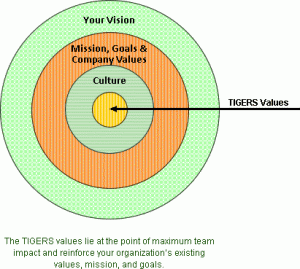 “Motivation Monday” is such a popular slogan because many people experience a slump after the weekend and don’t feel motivated to perform well at their jobs. Employers should take notice when employees describe a lack of motivation because their performance, quality of work and profitability for the company will dwindle, affecting others around them, as well as the organization as a whole. Leaders can identify unmotivated employees through a number of signs, including increased time away from their desks, slower response times or even missed deadlines. Once leaders identify these unmotivated employees, they can implement some team building strategies to improve performances and get employees excited about their work.
“Motivation Monday” is such a popular slogan because many people experience a slump after the weekend and don’t feel motivated to perform well at their jobs. Employers should take notice when employees describe a lack of motivation because their performance, quality of work and profitability for the company will dwindle, affecting others around them, as well as the organization as a whole. Leaders can identify unmotivated employees through a number of signs, including increased time away from their desks, slower response times or even missed deadlines. Once leaders identify these unmotivated employees, they can implement some team building strategies to improve performances and get employees excited about their work.
Motivating Employees: Low cost, high reward team building strategies for motivating your team members
Some low cost, high reward team building strategies include:
Look past the dollar.
Money can be an effective motivator, but only up to a certain extent. An article from CNN Money reported that employees are willing to deal with more stress for more money, but only up to an annual income of $75,000. So if an employee feels stressed in their positions, they are more willing to change positions for a 10 percent to 20 percent pay increase, and with pay up to $75,000, these employees will experience increased daily emotions. But once employees reach the $75,000 threshold, pay increases and bonuses no longer have the same effect on their emotional well-being. Monetary perks are a big draw for employees, but employers can achieve the same effect by focusing on engaging their workforce and creating overall well-being programs for associates. Employees who are fully engaged in their positions are less likely to leave, and employees who feel support in at least four of the well-being elements (purpose, social, financial, community and physical) are 59 percent less likely to look for a new position in a different organization.
Recognize the individual.
Employee recognition in the workplace is one of the most effective strategies for motivation, as it makes employees feel valued in their positions, boosts their engagement levels and increases both their productivity and loyalty to the company, Leaders can use money as a form of recognition, but it’s not the only effective strategy, and it’s often not the most important according to employees. Each employee will respond differently to recognition strategies, so it’s important for leaders to learn how to best recognize each employee on an individual level. Authentic and honest recognition will prove to be most effective and memorable for employees, and can take the form of public praise, private recognition, high evaluations or a promotion, among others. Once leaders learn what their employees value, they can recognize their employees on an individual basis.
Set goals.
When employees are working toward reaching their goals, rather than meeting your quotas, they are more likely to be motivated and successful in their positions. As a leader, you should be investing your time in teaching your employees valuable strategies and improving their skills. Assessment tools, like the TIGERS 360 Team Survey, are extremely valuable in this area, because they help leaders to assess a team’s behavior quotient, as well as provide actionable strategies for measurable improvement. By understanding where their employees currently stand behind workforce behaviors such as trust, interdependence, genuineness, empathy, risk resolution and success, leaders can work with their employees on an individual basis to improve their skills and reach their goals. Having an individual goal to attain is an extremely effective motivator for many employees.
Embrace failure.
Sometimes, past failures or even just the fear of failure is enough to stop motivation in its tracks. The best way to overcome this is by acknowledging failure as a necessary part of success and embracing it. This is both a criteria for risk and for success. If you’ve never failed, then you really haven’t pushed yourself, and you haven’t grown. By trying something new and putting yourself in a vulnerable position, you are poised to learn valuable lessons and grow your skills. Over time as you improve, you are better poised to succeed in other areas of your life. And that’s extremely valuable, both inside and outside of the workplace. To help your employees drop their fear of failure, create an environment that thrives on new ideas and celebrates innovation. Once employees aren’t afraid of failing, they will feel better motivated to try new strategies and improve their skills.
Motivation can be a tricky skill to master, so when your employees are lacking in this area, it’s important for you to step up and implement some team building strategies to fill the gap for your employees. Money can be an effective motivating factor, but it shouldn’t be viewed as the only solution for motivation, as many low cost and high effective strategies exist. Some ways that leaders can help motivate their employees include: looking past the dollar, recognizing the individual, setting goals and creating a culture that embraces failure. When your employees feel supported and appreciated, they will be better motivated to increase their productivity and performance.
To further the conversation, consider the following additional resources:
- Retaining Employees: How Much Does Money Matter?
- Employee Recognition: Low Cost, High Impact
- 7 Secrets to Motivating Your Salespeople
- 3 Ways To Stay Motivated When You Experience Setbacks
Copyright TIGERS Success Series, Inc. by Dianne Crampton
 About TIGERS Success Series, Inc.
About TIGERS Success Series, Inc.
TIGERS® Success Series is a Bend, Oregon Leadership and Team Improvement Consultant that helps committed leaders build more cooperation among employees and collaboration between departments for improved growth, revenue, purpose and impact. We also license and train HRD Executives, Project Managers, Managers, Trainers and Team Consultants in the use of the TIGERS model for team development and our award winning resources.
We do this by deploying the comprehensive TIGERS team process that improves workforce behaviors that are anchored by trust, interdependence, genuineness, empathy, risk resolution and success. Providing diagnostics and customized team interventions, you can improve both work culture and transform your adequate teams into exceptional ones.
For more information, call 1+ 541-385-7465.
Thanks for sharing. I read many of your blog posts, cool, your blog is very good.